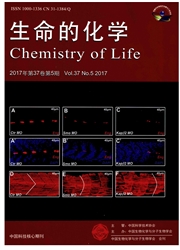

 中文摘要:
中文摘要:
人类子宫内膜异位症、动脉粥样硬化及乳腺癌等在很大程度上属于性激素相关性疾病,而在上述疾病的发生发展过程中,趋化因子的表达往往也有异常,提示性激素和趋化因子之间可能存在某种联系。研究证实性激素对趋化因子表达、分泌与活性的调节是广泛而多样的,其作用可因趋化因子的种类、组织和细胞的不同而异。进一步阐明性激素对趋化因子的调节作用及其机制,对于了解这些疾病的病理过程和探索相关的治疗手段无疑具有积极的意义。
 英文摘要:
英文摘要:
Human endometriosis, artherosclerosis and breast cancer are sex hormone related diseases to a great extent. Moreover, different profile of chemokines and chemokine receptors is always found in these diseases, suggesting that there are some relationship between sex hormones and chemokines. The universal regulatory effects of sex hormones on the expression, secretion and activity of chemokines and chemokine receptors have been demonstrated, the diversity depends on the kind of chemokines and types of tissues and cells. Therefore, illuminating how sex hormones regulate chemokines or vice versa in detail may be useful for deeper understanding of the pathogenesis of these diseases and for exploring reasonable therapeutic strategy.
 同期刊论文项目
同期刊论文项目
 同项目期刊论文
同项目期刊论文
 期刊信息
期刊信息
